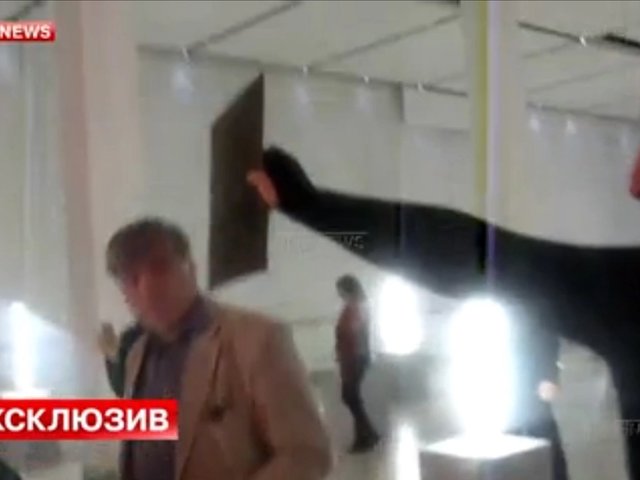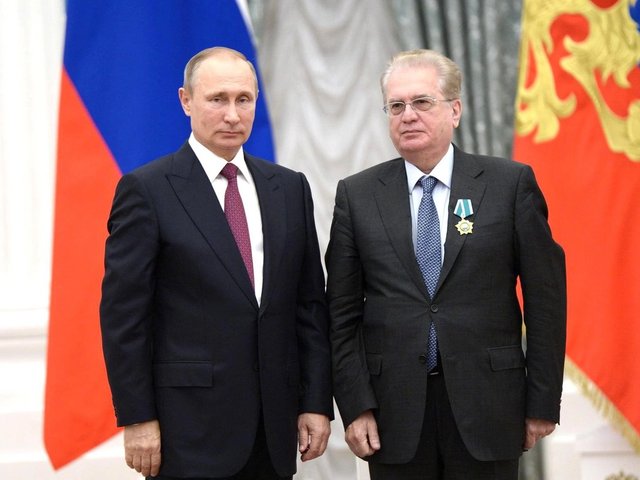St Petersburg
Museums in Russia, including the State Hermitage Museum, have been caught in the crossfire as the battle intensifies between conservative morality campaigners, who are often anti-gay, and their liberal opponents, while St Petersburg’s Nabokov Museum has been directly targeted.
President Vladimir Putin has not spoken about gay rights but his increasingly conservative policies, which promote strict Russian Orthodox values and patriotic ideals, have emboldened those targeting the gay community.
Last year, pro-Putin politicians in St Petersburg pushed through a local law banning “homosexual propaganda”, and, in January, parliamentarians voted overwhelmingly for a similar federal law, discussing it inside the State Duma building in Moscow while gay rights activists were attacked by nationalist and religious activists outside.
St Petersburg’s anti-gay ordinance has led to Venice and Milan suspending sister-city relations with the Russian city, threatening cultural and museum exchanges. Meanwhile, in the Netherlands, there has been a call for Dutch institutions to boycott bilateral cultural exchanges planned in Holland and Russia this year.
In January, Mikhail Piotrovsky, the general director of the Hermitage, rejected a request from Vitaly Milonov, a nationalist politician in St Petersburg, to hold a prayer service in the museum. Milonov said that the service at the Hermitage would honour Russian Orthodox saints killed during the Soviet era. During a question-and-answer session with residents of St Petersburg, Piotrovsky said that he replied in a letter to Milonov that “his idea of holding a prayer service in the halls of the Winter Palace is inappropriate and untimely”. Piotrovsky also revealed that the church that was originally located in the Winter Palace will eventually be restored and dedicated to the Romanov family. (Nicholas II, his wife and their children were canonised by the Russian Orthodox Church in 2000.)
Piotrovsky is constantly treading a fine line with conservatives and the Russian Orthodox Church. He was criticised by nationalists and Orthodox believers for “The End of Fun”, a recent exhibition of Jake and Dinos Chapman’s work (The Art Newspaper, February, p24).
Activists from the Narodny Sobor movement, who are close to Milonov, defied Piotrovsky and held a prayer service in the museum on 10 February. Milonov’s assistant, Anatoly Artyukh, who organised the service, caused an uproar last autumn when he said that milk packaging with a rainbow logo qualified as homosexual propaganda.
Meanwhile, staff at the Nabokov Museum, in the building in which the writer Vladimir Nabokov was born, fear a repeat of the attacks the institution suffered in January. In one attack, vandals smashed a bottle with threats and Biblical verses attached to it in the museum. In the second, the word “paedophile” was written on a wall of the building. Video surveillance cameras have since been installed to deter further attacks. Also in January, the promoter of a stage version of Lolita, which was due to have its premiere at the Erarta Museum and Gallery of Contemporary Art, was beaten and forced to say on camera that he was a paedophile. The play was postponed.
Antonina Nikonova, a professor in St Petersburg State University’s department of museum studies, which runs the Nabokov Museum, fears that the cause of such attacks runs deep. “It bears witness to serious changes in society’s priority of values, to deep transformations in the world view of Russian citizens, to a lack of understanding of the importance of accepting the past with all of its contradictions,” she told the RIA Novosti news agency.
Originally appeared in The Art Newspaper as 'Caught in the crossfire'



